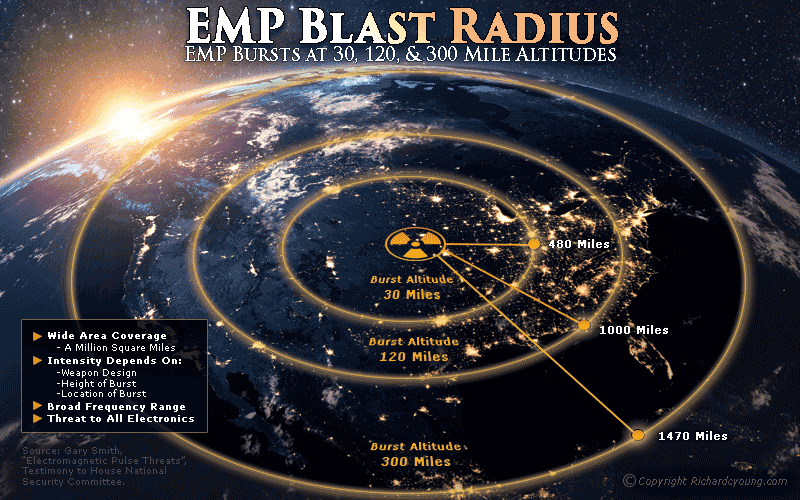 Are you familiar with the idea of an EMP attack on America’s electrical grid? Have you considered the possible ramifications of such an attack on your standard of living? If you’re an average American, chances are that you haven’t heard of an EMP attack, and therefore haven’t prepared for it at all.
Are you familiar with the idea of an EMP attack on America’s electrical grid? Have you considered the possible ramifications of such an attack on your standard of living? If you’re an average American, chances are that you haven’t heard of an EMP attack, and therefore haven’t prepared for it at all.
A new study from the Air Force’s Air University suggests that Americans are not prepared for such an attack. The report suggests that the biggest risk for Americans today is the lack of a national recovery plan from an EMP event. Air Force Magazine’s John Tirpak reports:
The biggest problem, according to the task force: there’s no national or military plan to recover from and retaliate against an electromagnetic pulse attack. The study recommended that the Department of Homeland Security and US Northern Command should create that plan together and regularly practice it.
Study participants looked to the aftermath of Hurricane Katrina and other natural disasters and said social norms would break down in “as little as 72 hours” following an electromagnetic attack. National planners need to study “the psychology of human desperation, starvation, and living without the rule of law” in building response and recovery blueprints, and be prepared to provide resources in the event of a long-term blackout, the report continued.
Four doctoral candidates opined in the Washington Post earlier this year that an EMP “could lead to deaths by shutting down medical, transportation, communication, banking, finance, food and water systems”—effects like those of Hurricane Katrina, but on a national scale.
The devastation wrought by natural disasters like Hurricane Maria gives Americans a taste of what an EMP disaster might feel like. Americans today simply aren’t prepared for long-term power outages. If you have even the slightest doubt about how your family might endure losing power for a month or two months, you need to take steps to improve your disaster preparedness. Start with water, communications, a survival kit, and an evacuation site. Work your way toward arming yourself, and getting any training you can that would be helpful in a disaster.
Read the entire study from the Air Force below:
LP_0004_ELECTROMAGNETIC_DEFENSE_TASK_FORCE_2_2019


